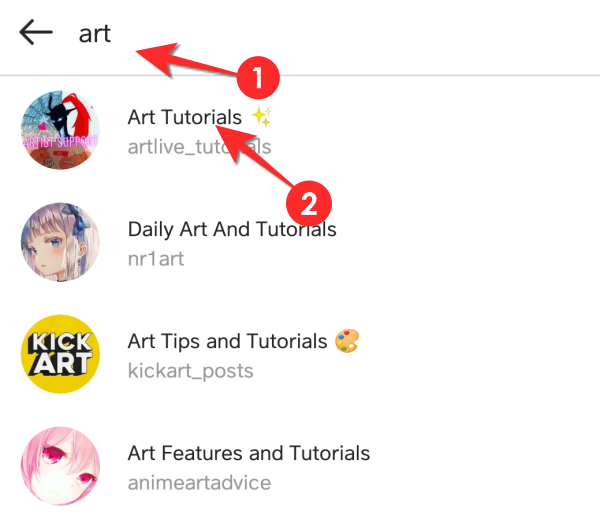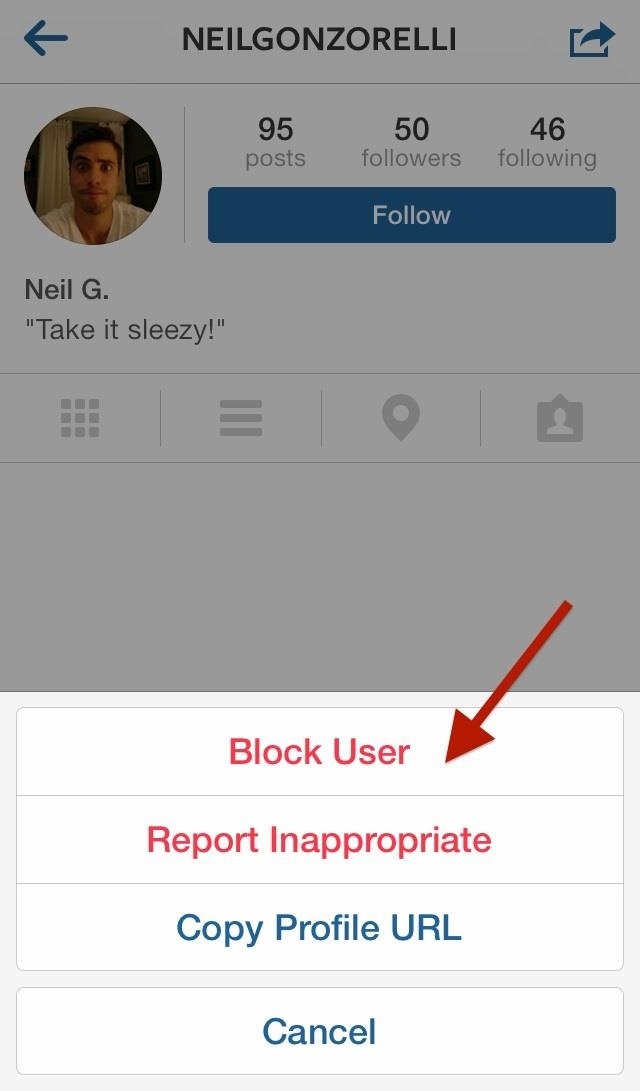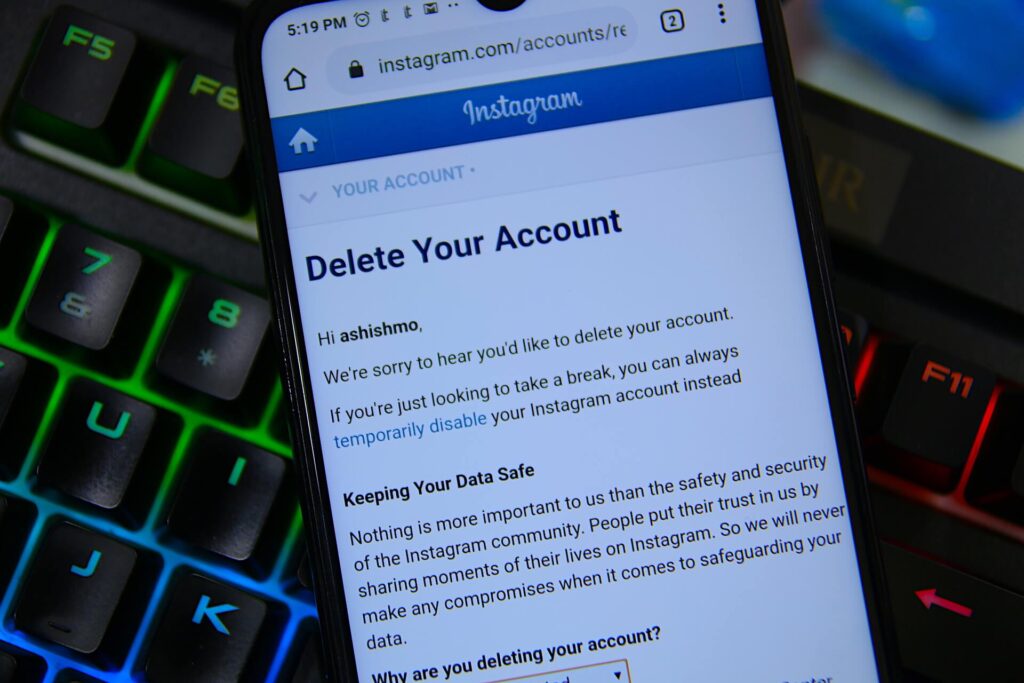How to copyright instagram photos
Instagram and Copyright: What Are the Terms of Use?
Instagram and copyright make strange bedfellows. Instagram is all about images and, increasingly, videos. And legally using images is a major issue when it comes to social media. Here are some things you should think about when using Instagram:
- Are you posting your own images on Instagram? If so, what use and re-use can others make of your images?
- Are you posting images that belong to others, with or without their permission?
- Perhaps you're posting a Creative Commons (CC) licensed image … did you attribute the owner of that image (as required under a CC license)?
Review Terms of Use
It's always advisable to review the terms of use (and any changes to them) for any app you use. Instagram's latest update to their their terms was on 4 January 2022. With respect to their previous update in December 2020, there was controversy around privacy issues, as this article indicates.
Make sure you understand the impact of any app's terms not only on your behavior on the app, but also on your content that you share there. Creating an account is your agreement to those terms, so know what they are! Here's what Instagram says about their Terms of Use, which actually reside on Facebook.com since Facebook owns Instagram:
These Terms of Use (or “Terms”) govern your use of Instagram, except where we expressly state that separate terms (and not these) apply, and provide information about the Instagram Service (the “Service”), outlined below. When you create an Instagram account or use Instagram, you agree to these terms. The Meta Terms of Service do not apply to this Service.
The Instagram Service is one of the Meta Products, provided to you by Meta Platforms, Inc. These Terms of Use therefore constitute an agreement between you and Meta Platforms, Inc.
Instagram Terms of Use
Instagram's Terms of Use and other legal information provide information that helps you understand who owns your posted content, how others may use it, and how you can legally post content on Instagram.
Instagram's Terms of Use — Copyright
Below we set out excerpts from Instagram's Terms of Use, specifically those relating to copyright law. These Terms of Use were last revised 4 January 2022. They're written in plain language and Instagram users will get an understanding of their rights and obligations by reading them.
The discussions below of these Terms are brief and descriptive, and aren't intended to provide an in-depth analysis or legal advice relating to the Terms. Consult a lawyer if you need specific advice or a legal opinion.
Instagram and Copyright: Permissions You Give to Instagram
The key copyright license you provide to Instagram when you post content on it is found under Your Commitments in Instagram's Terms of Use under the subheading Permissions You Give to Us.
We do not claim ownership of your content, but you grant us a license to use it. Nothing is changing about your rights in your content.
Instagram Terms of Use, "Permissions You Give to Us"We do not claim ownership of your content that you post on or through the Service and you are free to share your content with anyone else, wherever you want. However, we need certain legal permissions from you (known as a “license”) to provide the Service. When you share, post, or upload content that is covered by intellectual property rights (like photos or videos) on or in connection with our Service, you hereby grant to us a non-exclusive, royalty-free, transferable, sub-licensable, worldwide license to host, use, distribute, modify, run, copy, publicly perform or display, translate, and create derivative works of your content (consistent with your privacy and application settings). This license will end when your content is deleted from our systems. You can delete content individually or all at once by deleting your account.
Your Non-Exclusive License to Instagram
The paragraph above clearly states that you own the photos, videos or content you post on your Instagram account. Instagram doesn't become the owner of your posted content. Rather, you're providing Instagram with a global non-exclusive license to host your content.
Instagram doesn't become the owner of your posted content. Rather, you're providing Instagram with a global non-exclusive license to host your content.
You're also providing Instagram with a non-exclusive license to use, distribute, modify, run, copy, publicly perform or display, translate and create derivative works of your content. These uses must comply with Instagram's privacy and application settings.
Now is a good time to check your settings and see what you permit. Copyright law itself (according to the country where the images are reproduced or shared) is what governs the use of your Instagram photos and other content by any third parties.
By virtue of posting images on Instagram, you're not giving up ownership of your images. For most uses outside of Instagram (or even on it), any third party should be obtaining permission from you to use your images or other content.
There may be some situations such as fair use (in the U.S.) or fair dealing (in Canada and the UK) which allow people to use your images under certain circumstances without your permission.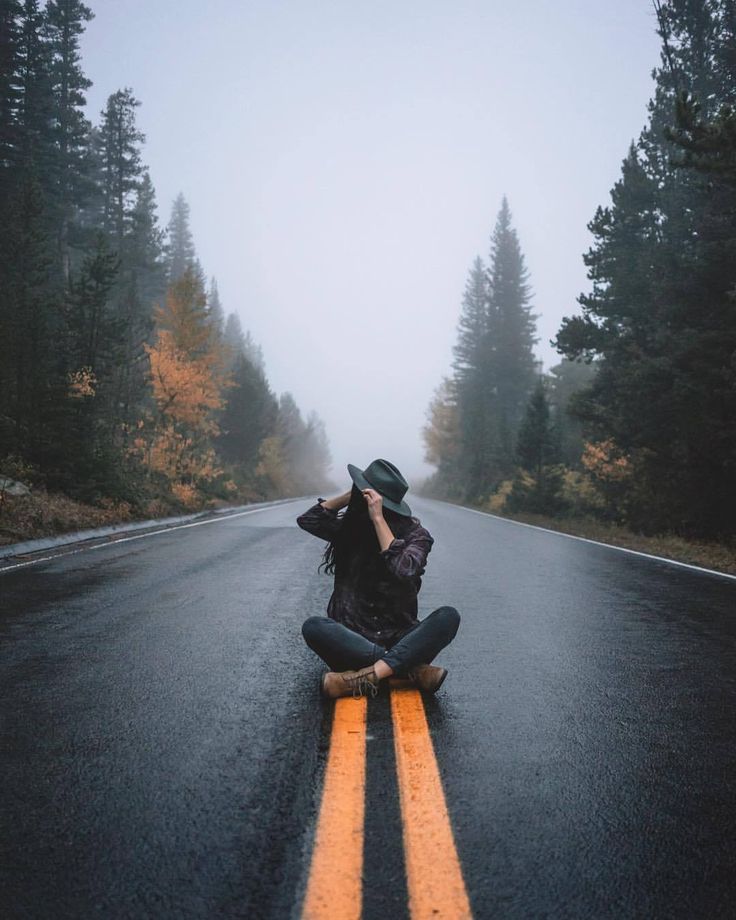
You can end the non-exclusive license you're providing Instagram by deleting your content or closing your Instagram account. However, this won't prevent others from legally using your content as already accessed from your account.
It's important to understand that when you delete content from Instagram it's not necessarily deleted right away.
When you request to delete content or your account, the deletion process will automatically begin no more than 30 days after your request. It may take up to 90 days to delete content after the deletion process begins. While the deletion process for such content is being undertaken, the content is no longer visible to other users, but remains subject to these Terms of Use and our Data Policy. After the content is deleted, it may take us up to another 90 days to remove it from backups and disaster recovery systems.
Instagram Terms of Use, "Content Removal and Disabling or Terminating Your Account"
In addition, your content deletion request may not be processed in accordance with the timelines stated in the quote above for a variety of reasons, such as:
- If others have used your content in accordance with the Instagram license and they haven't deleted it
- Technical reasons
- Some administrative/legal issues as outlined in this section of the Terms
Rights Instagram Retains
If you're using any images, designs, videos or sounds that Instagram has intellectual property rights in and provides for you to add to your content and share, you don't get any rights in their content.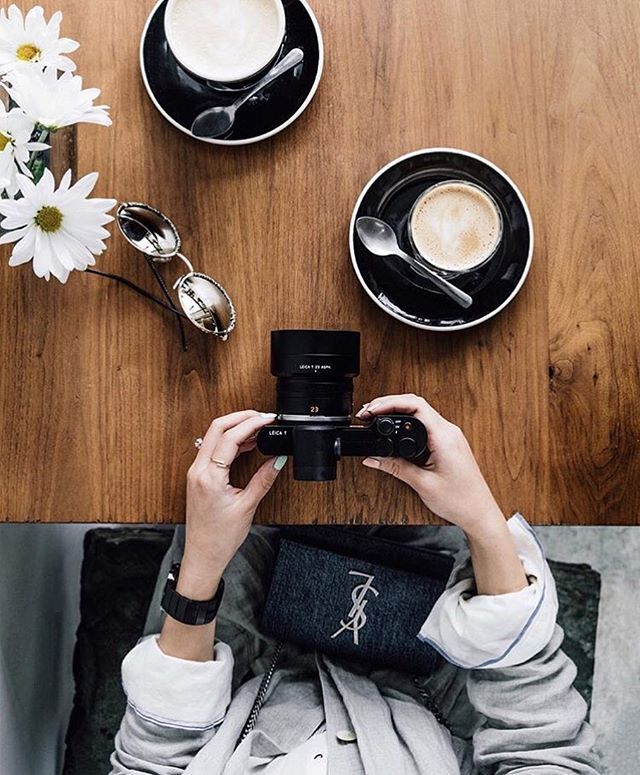 Instagram retains those rights but doesn't have rights to your content.
Instagram retains those rights but doesn't have rights to your content.
If you're using Instagram's intellectual property and trademarks or similar marks, you need to do so under their Brand Guidelines or with their prior written permission.
Instagram and Copyright: What You're Not Allowed and Allowed To Do
You can't post someone else’s private or confidential information without permission or do anything that violates someone else's rights, including intellectual property rights (e.g., copyright infringement, trademark infringement, counterfeit, or pirated goods).
Instagram Terms of Use, "How You Can't Use Instagram"
From Instagram's Intellectual Property page, you can access more information about copyright and how to report copyright violations through the "learn more about reporting copyright violations" link. It takes you to the Copyright page. That page includes extensive Q&As on copyright generally, copyright and posting content on Instagram, and reporting copyright violations on Instagram.
On the Community Guidelines page, this statement appears:
Share only photos and videos that you’ve taken or have the right to share.
Instagram Community Guidelines, "The Long"
As always, you own the content you post on Instagram. Remember to post authentic content, and don’t post anything you’ve copied or collected from the internet that you don’t have the right to post.
All this information serves as a reminder that whatever content you post, you need to make sure you actually own that content or have permission to post it.
While the information provided by Instagram is comprehensive, its fragmented presentation may make it easy to miss some components of it. Use common sense when posting your own content and sharing the content of others (see our tips for reposting content on Instagram, below). If in doubt, investigate your proposed uses before you post content. And be aware of the copyright rules for legally using images.
Instagram's Section on Reporting Copyright Violations
If you wish to report copyright infringement to Instagram, you can do so using the form they provide, or by submitting a claim to their designated agent. Instagram makes the following statement about information they provide about your claim to the person who allegedly infringed copyright:
Please note that we regularly provide your name, contact information and the contents of your report to the person who posted the content you are reporting. If you are an authorized representative submitting a report, we provide the name of the organization or client that owns the right in question. You may wish to provide a professional or business email address for this reason.
Instagram, "What information do I need to include in a copyright report on Instagram?"
You can find more detailed information about the reporting process in the Reporting Copyright Infringement on Instagram section of the Copyright page.
Tips for Reposting Content on Instagram
Instagram allows you to share links to others' posts on other sites such as Facebook, Twitter, WhatsApp or elsewhere and by email, text and more. An Instagram user who has access to a post can share it to their Instagram story or in a message if the content owner has allowed those actionsin their privacy settings.
However, there's no native repost function on Instagram. There are, however, numerous apps available that allow you to repost others' Instagram images to your own account. While these apps make it easy to share someone else's post on your Instagram account, they don't make it legal!
If you'd like repost another Instagrammer's photo of puppies to your own account, get their permission first. Here are several steps you can take to seek permission:
- Leave a comment on their post, asking for permission to share on your account
- Direct Message them asking if you may may repost that image.
 To ensure no confusion, the best way to do this is to include the image in the DM (open their account, select the image you wish to reshare, click the "paper airplane" [or, send] icon, search for their name and select it, then write your message and send)
To ensure no confusion, the best way to do this is to include the image in the DM (open their account, select the image you wish to reshare, click the "paper airplane" [or, send] icon, search for their name and select it, then write your message and send) - Use the contact information in their profile to email them for permission to repost their content on your account
Copyright Tips For Posting Your Own Content On Instagram
In addition to being aware of Instagram's Terms of Use, you should also keep in mind some tips to follow when posting content online:
- Place a copyright symbol on your content
- Include a link to your email or website in your profile so people can easily obtain permission from you prior to using your content
- Post only low resolution images
- Use watermarks on your content
See our comprehensive online Copyright Leadership Certificate for an in-depth understanding of copyright principles and practical strategies and Tools you can customize to meet your organization's needs.
Want more copyright tips and information?
Subscribe to our weekly email and grow your copyright knowledge.
We respect your privacy.
5 Ways to Protect Your Instagram Pictures
When you were in elementary school or middle school, how many of you all used to cover your papers so no one would copy your answers? *raises hand*
Yes, I was that kid and it explains my Type A Personality at an early age. Was I a nerd or a geek? Don’t know, don’t care! I just know I studied way too hard to let somebody copy my work.
One thing I do know is how hard it is to run a business, and how hard it is to create all of this content for your readers. I know I struggle with blogging. It’s a lot of work.
And those who make their bread and butter off of blogging and creating content, I know it makes your blood boil to see someone stealing your work and taking the credit for it! Photographers, this goes for you too. I can only imagine someone using MY PHOTOS that I worked so hard to create and edit, and pass it off as theirs.
According to The Verge, Instagram has ONE BILLION followers on the site. ONE BILLION! That means there are 999,999,999 people who can steal your photos on Instagram and pass it off as yours. Although we can’t stop the thieves, we can deter them!
And in this blog post, I am going to give you 5 ways that you can protect your Instagram pictures and deter copycats from stealing from you.
1. Register photos with the Copyright Office
Registering your photos with the Copyright Office is the #1 way to protect your Instagram pictures. I have given you some of the benefits of registering your photos with the Copyright Office, like statutory damages and attorney’s fees.
Here are other benefits for copyrighting your photos:
• To file an infringement case in court, you MUST register your work. If a registration has not been filed, then you are SOL. Well, kinda. If the infringement happened within that three months, you can still register and then file suit. If the infringement happened and three months have passed, you have forfeited the big bucks (i.e. statutory damages and attorney’s fees).
If the infringement happened and three months have passed, you have forfeited the big bucks (i.e. statutory damages and attorney’s fees).
•If you file an infringement suit, and you are already registered, the Copyright Office is going to assume you are the owner. That’s one hurdle that will get you closer to winning your case.
• Registering your photos with the copyright office will establish a record with the U.S. Customs and Border Protection for protection against the importation of infringing copies. Has nothing to do with IG, but who doesn’t like learning more!?
2. Use the copyright symbol to protect your Instagram pictures
Put a copyright symbol on your photos. This puts the public on notice that you created this photo. Although you don’t have the same protections as when you register your copyright with the Copyright Office, the copyright symbol may deter people from using your photo.
Also, if you register your photo with the Copyright Office within 3 months of publishing your work, this includes publishing to Instagram, you can be eligible for costs, statutory damages, and attorneys fees if someone infringes on your photo. But make sure that you register the photo within 3 months. If you don’t, you may be giving up attorney’s fees and statutory damages, if you decide to sue someone for infringement.
But make sure that you register the photo within 3 months. If you don’t, you may be giving up attorney’s fees and statutory damages, if you decide to sue someone for infringement.
Format for your copyright notice: © 2019 Company Name or Author Name. All Rights Reserved.
3. Watermarking your photos to protect them from poachers on Instagram
Another way to protect your Instagram pictures is to watermark your photos. Watermarking your photos also lets others know through your watermark, that you were the original creator of the photo. However, we all know how easy it is to download a picture and remove the watermark from the photo. There’s so much technology that is being used for evil, although intended to be used for the good. But if someone does takes off your watermark, they are determined to steal from you. That’s why copyright registration is important, because you can sue the infringer.
4. Report the infringement to Instagram
Instagram already has there own way to report if someone is infringing on your copyright. It is unclear if your copyright has to be registered, but you can probably reach out to them directly to get a little bit more information.
It is unclear if your copyright has to be registered, but you can probably reach out to them directly to get a little bit more information.
However, if someone is impersonating you on Instagram, you can reach out to Instagram and show them your ID and they will take down the account.
5. Send a cease and desist letter
There are literally companies that look for people who infringe on copyrights and trademarks. So if you notice that someone is using your Instagram pictures, you can send the company or user a letter directly. You should ask them to take down your work and demand compensation since they stole from you.
But word of advice, if you aren’t ready to go to court, don’t go threatening people with a lawsuit and asking for an exorbitant amount of money. And remember, if the photo isn’t registered with the Copyright Office, you may only be able to get actual damages (which are harder to prove), and not statutory damages and attorney’s fees.
Bonus: Did you know that you can protect your photos by putting the metadata in your photos?If you edit your photos on Photoshop or Lightroom, you can add copyright information to the metadata of the picture.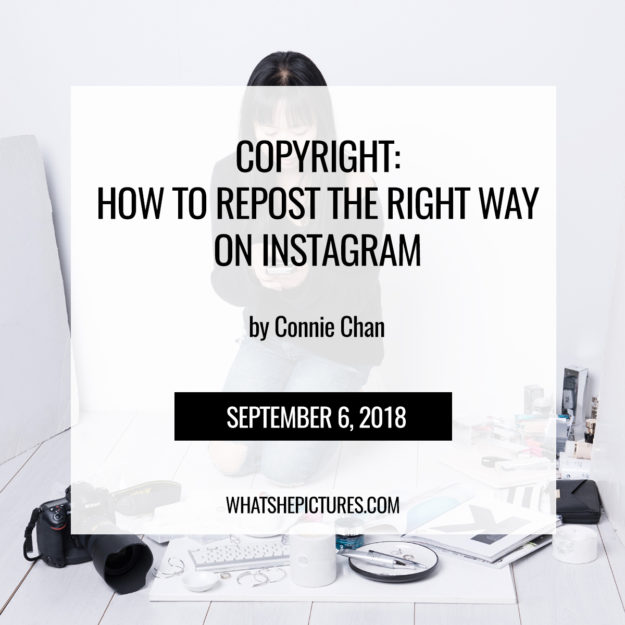 From my understanding, Instagram removes the metadata automatically from your photos. But you can still use this method on your website to protect your photos. Although, poachers can still remove the metadata, it’s another way to deter those from stealing from you. And if they don’t know about this method, your metadata will still be on the photo as proof that they have infringed on your copyright. To find out how to put metadata on your photos through Lightroom, click here. To find out how to put metadata on your photos through Photoshop, click here.
From my understanding, Instagram removes the metadata automatically from your photos. But you can still use this method on your website to protect your photos. Although, poachers can still remove the metadata, it’s another way to deter those from stealing from you. And if they don’t know about this method, your metadata will still be on the photo as proof that they have infringed on your copyright. To find out how to put metadata on your photos through Lightroom, click here. To find out how to put metadata on your photos through Photoshop, click here.
Have more questions about registering for a copyright or cease and desist letters? Reach out to Wilson Murphy Law and let’s talk.
Share the love
How photo copyright works on Instagram
Instagram users often talk about photo rights. Usually they swear: they say, someone violated the rights, published something illegally, stole, appropriated authorship.
We figured out how photo rights work on Instagram, and how to publish photos without the threat of deletion (or court).
Photo rights
Each photo has two types of rights that operate simultaneously: copyright and property. From the point of view of international law, there is no difference between a random picture on Instagram and the work of a famous photographer. Since there is a photo, there are copyright and property rights.
Copyright
Owned by the author and cannot be sold, transferred, given away or taken away. Copyright belongs to the author forever. To prove them, you need to present the films or the original frame taken on the camera of a camera or phone (special information is recorded in the original frame, which is almost impossible to fake).
Property
Occurs when the author sells the picture. He formally remains the author, but no longer has the right to dispose of his picture. The new owner can use the photo as he wants, and the author cannot stop him. Property rights may expire, they can be revoked in court.
To prove property rights, you need to have a document on the purchase of a picture or a contract for the work of a photographer.
Let's see how these rights work on Instagram
Ok. You saw a beautiful photo of a bouquet from your shop and ask the author to post it on your Instagram. The author agreed, you signed his authorship.
Bad. You found a random photo of a cat online and posted it along with your ad copy. Both property and copyrights are violated. The author can complain, and your photo will be removed.
Doubtful. An employee worked in your flower shop who took pictures of bouquets and posted them on Instagram. She quit, and after that she demands to indicate her authorship everywhere and pay for the pictures. You can prove your property rights to the picture, as you asked to do this as part of your work duties. But the copyright belongs to the employee, and they will have to be respected - you need to indicate her name in the description of each picture.
Photos of people
Photos of people are more difficult. A picture of a person is his personal data. Photographs of people are treated differently in different countries, but in general, the permission of the person is required to use such a photograph. If you publish without permission, he can complain to Instagram, and the picture will be deleted.
This rule does not apply to people filmed in public places. They photographed a person on the street or at a concert - the picture is yours.
Good. You are photographing a lookbook for your clothing store on Instagram. You ask the models to confirm in writing that they agree to the use of their photographs. Everything is fine, photos can be used safely.
Bad. You take pictures of people in your showroom and post them on Instagram. Someone is dissatisfied with the picture and complains to the social network - and the photos are deleted.
Doubtful. A user took a picture of you and posted an insulting post on Instagram. You repost with his posts. The enemy complains to the social network, and your picture is deleted. Despite the fact that he insulted you, you illegally used his photo - violated copyright. Insults - separately, the rights to the picture - separately.
A user took a picture of you and posted an insulting post on Instagram. You repost with his posts. The enemy complains to the social network, and your picture is deleted. Despite the fact that he insulted you, you illegally used his photo - violated copyright. Insults - separately, the rights to the picture - separately.
Photo by Kaique Rocha from Pexels https://www.pexels.com/photo/people-brasil-guys-avpaulista-109919/
So, how to upload photos to ONLYPULT correctly so as not to get caught in violation of rights:
- Try to publish only pictures that you have taken yourself. So both property and copyright will be with you.
- If you use other people's pictures, arrange for publication (ask for permission or sign a contract with the photographer). So the property rights will become yours, and you will observe the copyright if you specify the photographer.
- Photos of people are their personal data. People can only be posted on Instagram with their permission.
 The exception is public places and events (for example, the street).
The exception is public places and events (for example, the street).
ᐈ Copyright infringement on Instagram
With the spread of the Internet, copyright enforcement is increasingly affected. A frequent violation is the posting of texts, photos, videos and music recordings on social networks, the rights to which the user does not have. Using someone else's content without permission occurs on all networks, but now let's talk about how to protect copyright on Instagram.
Social networks strive to ensure that users can post their content without fear, and stop theft. You can complain about violators on Instagram, it really works: stolen materials are deleted, accounts of thieves are blocked.
A few words of theory. Copyright arises at the moment of completion of work on an object (photo, article, music). And you can defend it after the public disclosure of the work. When you post a photo to your account, you have copyright on the photo on Instagram. If you post someone else's previously published picture, it will be a direct violation. Quoted from the Instagram Terms of Use (hereinafter referred to as the Terms):
If you post someone else's previously published picture, it will be a direct violation. Quoted from the Instagram Terms of Use (hereinafter referred to as the Terms):
“As always, you own what you post on Instagram. Do not forget that only authentic materials can be published. Do not post anything that you have copied or found on the Internet unless you have the rights to do so. Violation of these policies may result in material removal, account suspension, or other restrictions."
Important information is contained in paragraph 14 of the section "Basic conditions". It states that you can only post photos or videos that the user created himself, or that he has permission to share.
Social networks and copyright: common problems
Online communication and sharing of information is very common, so copyright and social networks are very closely related. It is important not to violate on your own and respond in a timely manner if your own interests are violated.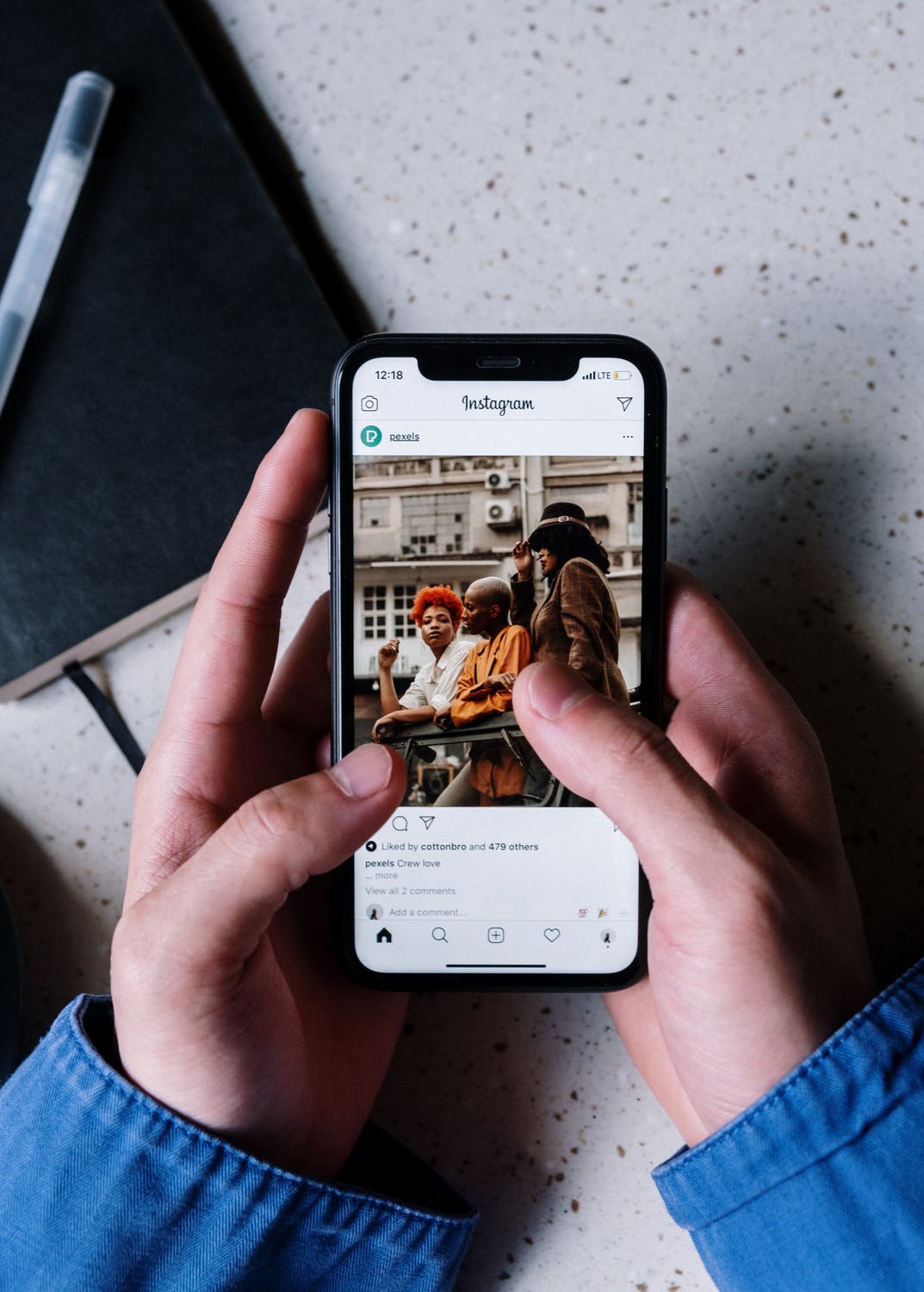
A is violated in this way:
- Photos from a blogger are borrowed by another blogger, magazine, website or travel agency, used for illustrations or advertising.
- The article is reprinted by the aggregator site, does not indicate authorship, does not provide an active link to the creator.
- The watermark from the photo is removed when reprinted (this is a violation of the inviolability of the work).
- A clone shop is being created.
Any of these problems Instagram profile complaint would be justified. The most common problem is the accounts of clone stores. The creators of fake and fraudulent pages parasitize on the audience gathered by well-known brands (manufacturers, distributors, retailers). Fake people need to be dealt with. On the one hand, they cause damage to copyright holders who invest in promoting their Instagram pages, promoting goods and attracting an audience. On the other hand, they simply deceive buyers.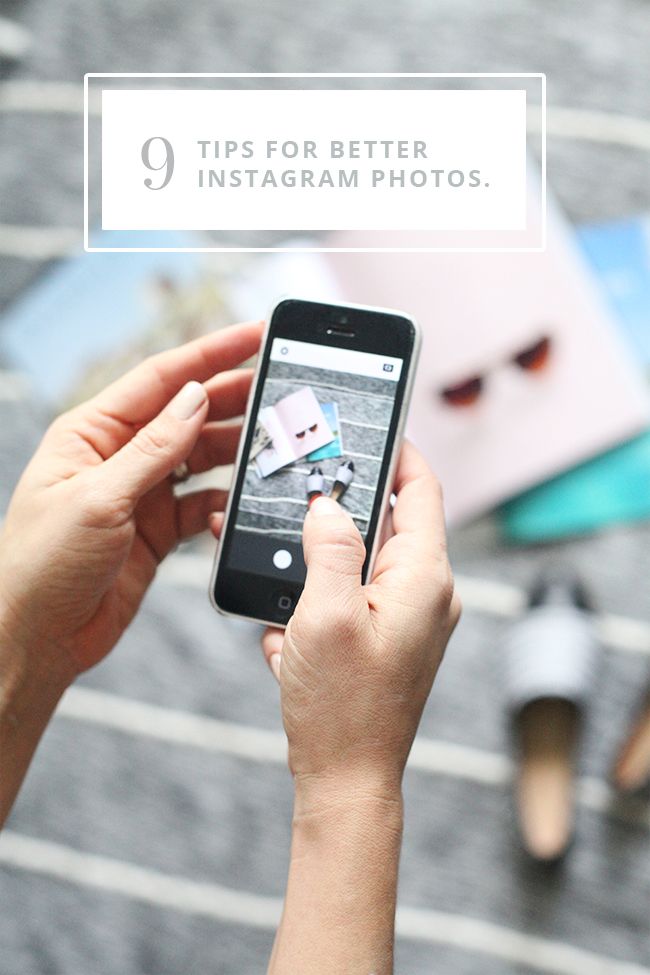
If you complain about an Instagram account, the administration of the service will control the removal of infringing materials. In case of repeated violations, the pages of violators are blocked. It happens that they can block an account for one carelessly posted photo.
How not to violate copyright on Instagram
In a nutshell, to use the content you need to have either authorship or permission from the owner. That is, you need:
- Publish your author's written, photo, video, music content.
- Purchase photo and video content for use from creators or on special stock sites.
- Use content that is published under licenses such as Creative Commons or tagged Public Domain.
- If the photo or video was created by order, it is obligatory to conclude a written contract for the transfer of rights with the photographer or videographer. Otherwise, the author has the right to dispose of the material at his own discretion.

It is allowed to quote works. Sure music copyright on Instagram does not imply "citation" of musical works. Unless you can sing a song or play a tune yourself, record it on video. You can post movie frames or clips, publish quotes from other people's texts with a link to the author. But it is necessary to quote accurately, without distortion. On the other hand, even this is not always liked by the authors, sometimes they complain about quoting.
What can be posted on Instagram according to the official rules
The conditions of the social network repeat the theses stated above, in other words. They give simple but effective rules for maintaining your own author account. Clause 4 of the "Rights" section says: "You represent and warrant that:
- you own the materials published by you on or through the service, or otherwise have the right to assign the rights and licenses set forth in these terms of use;
- The posting and use of your materials on or through the Service does not infringe or misappropriate the rights of any third party, including, but not limited to, the right to privacy, right of publicity, copyright, trademark and/or other rights on intellectual property (…)”
Report copyright infringement on Instagram
For more information on how to report intellectual property infringement, please follow this link.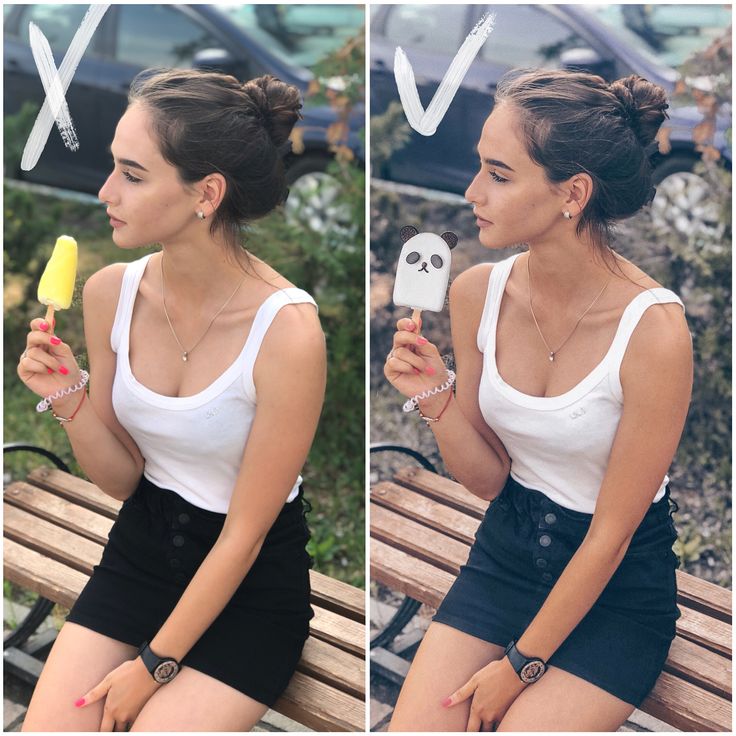 To protect authorship, the Terms provide for the corresponding complaint form on Instagram. If you think you've experienced infringement (use of music, logo, trademark without permission), you can fill out this form.
To protect authorship, the Terms provide for the corresponding complaint form on Instagram. If you think you've experienced infringement (use of music, logo, trademark without permission), you can fill out this form.
Alternatively, email us at [email protected] and we will promptly prepare a copyright infringement request. Be sure to include a detailed description of the claim regarding the situation. An important point: to file a complaint, you do not need to have your own Instagram account.
If you notice plagiarism in social networks , you can contact the violator who posted it yourself. You need to write in Direct (private messages), here you will need an account. This can be done before sending a complaint to the administration of the social network. If after the request the content is not deleted, then the next step is to contact the Insta admins.
Sometimes it takes some time, up to several days, to process a complaint. Do not worry if the administration does not respond immediately - it will definitely respond.
Do not worry if the administration does not respond immediately - it will definitely respond.
But how many complaints do you need to delete a photo on Instagram ? As a rule, one is enough to have a reaction. However, we often encounter situations when, after blocking, a new account is created, which also continues to use pirated content. In this case, you need to complain again.
How else can you complain
The consequences of complaints from the administration can be different. At first, it may be a warning asking you to delete, for example, a photo posted with copyright infringement. Further, if the content is not removed, the violator's account is blocked.
In addition to complaints on Instagram, you can use legal methods of influence in accordance with the legislation of Ukraine. For example, if goods of your production are displayed in someone else's insta-shop, you can send a document called “Pre-trial claim” to the real address of the violator.







